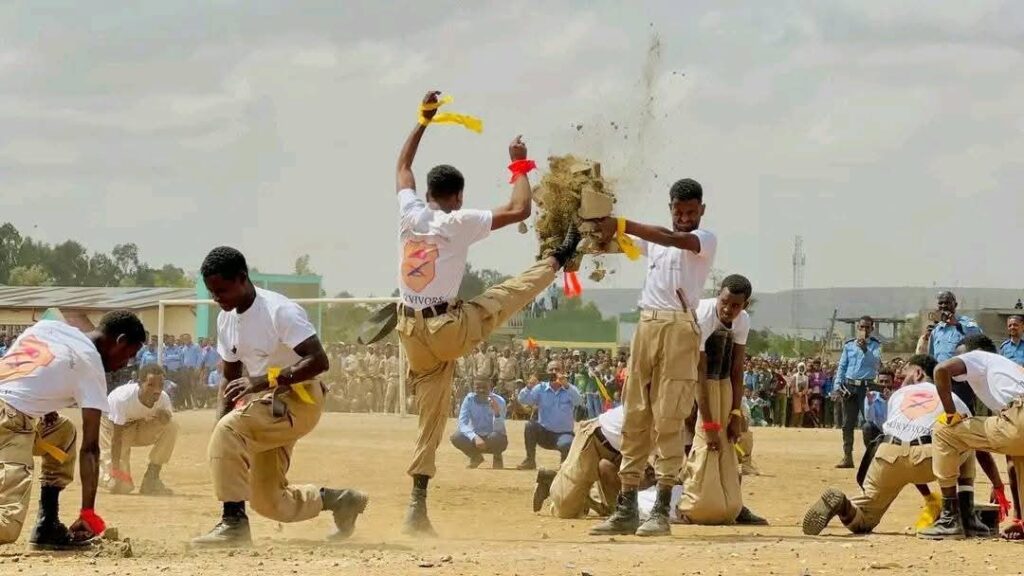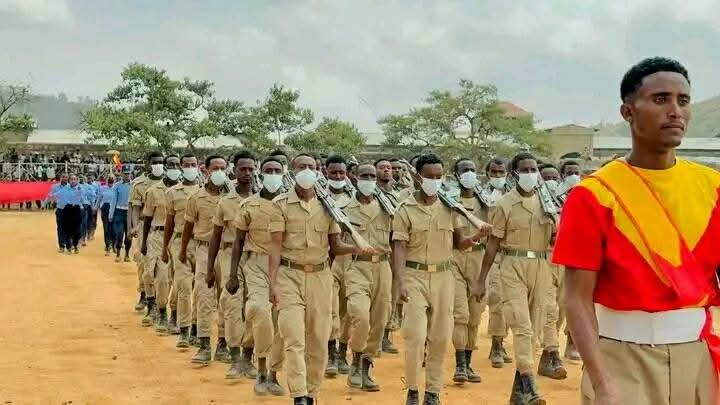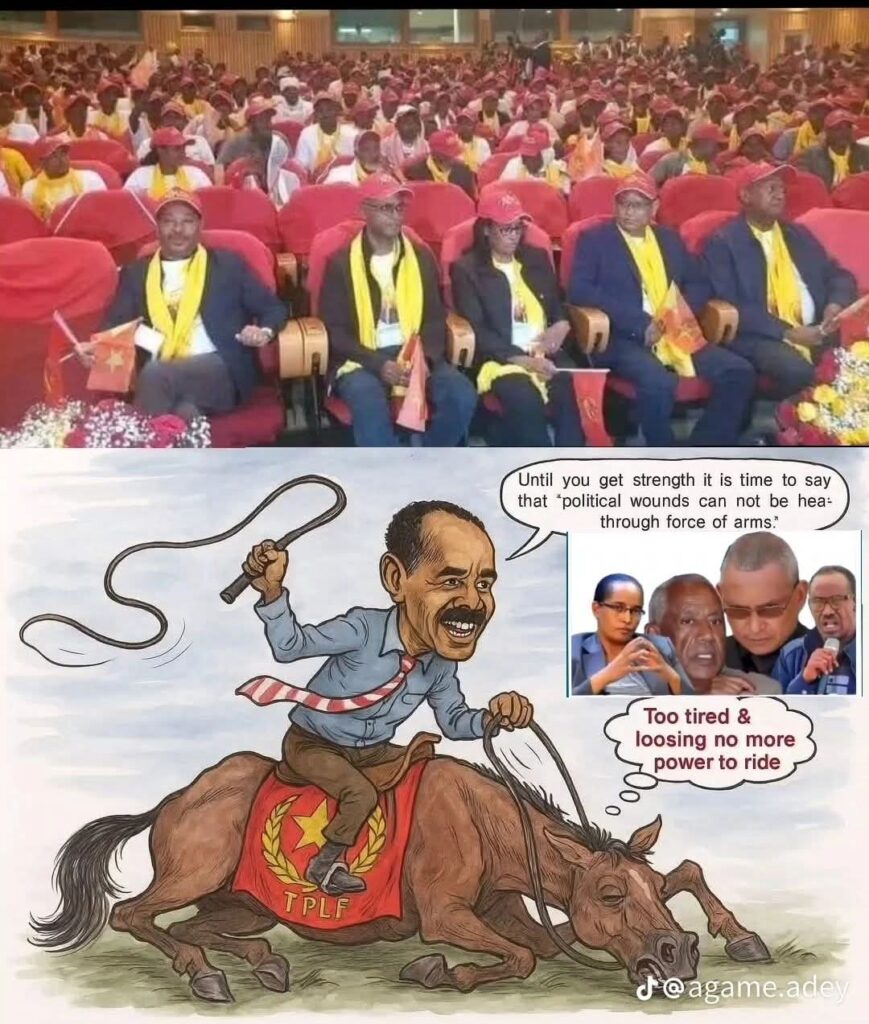Mekelle፡Telaviv, Nairobi, Pretoria, London, (Tigray Herald).
The TPLF’s Military Parade Is a Betrayal of Tigray’s Pain and Addis Ababa’s Silence Is Complicity
By Tessema Nadew
While mothers still search for their missing sons and survivors of sexual violence remain unheard, the TPLF has chosen theatre over truth. In Mekelle, a so-called “book inauguration” was held not in a lecture hall or cultural center but with soldiers in fatigues, generals in full regalia, and tanks on display. It was, by every stretch of the imagination, a military parade disguised as a literary event.
The organizers? None other than the TPLF’s infamous “above core” generals the same elite cadre that presided over Tigray’s descent into war. With carefully choreographed salutes, formations of armed men, and roaring applause, the event bore chilling resemblance to the months just before the catastrophic war of 2020.
“It felt like déjà vu,” said a university student in Mekelle. “Last time they showed us strength like this, we ended up in mass graves and refugee camps.”
This isn’t just tasteless political theatre. It’s a deliberate attempt to revive militaristic nationalism, rewrite history, and repackage warlords as visionaries. And yet, the Ethiopian federal government remains silent unwilling or unable to challenge the TPLF’s creeping return to wartime posturing.
What Did the TPLF Learn? Apparently, Nothing
Tigrayans have not forgotten the price of war. Thousands of lives were lost, civilians starved, women were systematically raped, and cities were bombed into rubble. But the TPLF leadership, particularly the above-core generals, appear more interested in rehabilitating their image through displays of force than in reckoning with their past.

What did the TPLF learn from the horrors of the last three years?
Not humility.
Not accountability.
Not civilian-first governance.
Instead, they have returned to the comfort of command culture, cloaking self-interest in nationalist rhetoric, using books and banners as cover for power consolidation.
A Federal Government That Prefers Peace to Justice
The federal government’s silence is not merely an oversight it is a political calculation. Prime Minister Abiy Ahmed’s administration, still fragile after the Pretoria Agreement, has adopted a posture of strategic ambiguity: peace on paper, paralysis in practice.
By turning a blind eye to the TPLF’s symbolic rearmament, the federal government:
Avoids upsetting a delicate ceasefire.
Maintains the illusion of reconciliation for international donors.
Hopes Tigray will police itself without federal reinvestment or intervention.
But this inaction has costs.
Every parade that goes unchallenged erodes civilian trust.
Every silence from Addis emboldens old warlords.
Every unspoken truth makes another war more likely.
The Spectre of the PFDJ–TPLF Axis
Complicating the picture further is the unspoken, tacit détente between the TPLF and Eritrea’s ruling PFDJ. While officially enemies, neither side has launched recent provocations. Some analysts suspect mutual interests in regional dominance, a shared opposition to democratic pluralism, or backchannel guarantees to stay out of each other’s way.

This unholy alliance, while unofficial, risks dragging the Horn of Africa back into the era of proxy wars and authoritarian coordination.
“This is not peace. This is a chess game between rival strongmen,” says a regional political analyst in Nairobi. “And it’s the civilians who will get knocked off the board.”
President Tadesse Werede, who took leadership under the mandate of the Pretoria Agreement, pledged before international observers to prevent alliances that compromise Ethiopia’s sovereignty and the legitimacy of the federal government. But despite this vow, the TPLF and PFDJ appear to be quietly conspiring to unseat Prime Minister Abiy Ahmed. So far, Tadesse has taken no visible action against top TPLF leaders or generals who are reportedly collaborating with Asmara. His silence is becoming an accessory to betrayal a betrayal not just of Addis, but of the very people he claims to represent.

The Horn Deserves Better Than More Guns and Ghostwriting
There is nothing wrong with inaugurating books. But there is everything wrong with dressing it up as a military mobilization in a region still bleeding from war. The people of Tigray deserve truth commissions, demobilization, and schools not staged displays of strength.
If the TPLF wants to regain legitimacy, it must do so through transparency, reparations, and inclusive governance. And if the federal government is serious about peace, it must stop tolerating such performative warmongering in civilian disguise.
This is not just about Tigray. The entire Horn of Africa is watching and wondering whether the lesson learned from the last war is that warlords can simply wait, rebrand, and rise again.
Ras Tessema Nadew is a Horn of Africa political analyst and writer focused on transitional justice, post-conflict recovery, and regional security.



